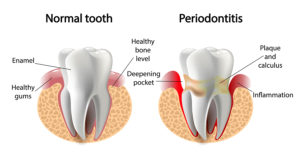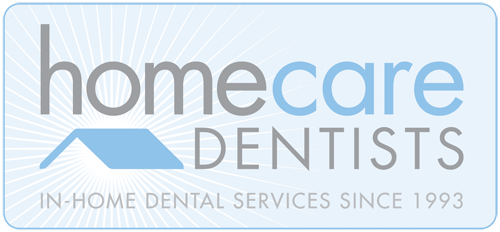 Elderly oral health is just as important as oral health in younger populations, and maybe even more so. In particular, gum disease has potentially serious consequences for the health and well-being of older adults. Gum disease can be prevented and even treated when identified in its earliest stages. Therefore, it’s important for either the older adult or a caregiver, if necessary, to monitor the gums for the symptoms of periodontal disease.
Elderly oral health is just as important as oral health in younger populations, and maybe even more so. In particular, gum disease has potentially serious consequences for the health and well-being of older adults. Gum disease can be prevented and even treated when identified in its earliest stages. Therefore, it’s important for either the older adult or a caregiver, if necessary, to monitor the gums for the symptoms of periodontal disease.
What are the signs of gum disease?
Gum disease is a progressive condition with symptoms that become more severe as the disease advances. Early stage gum disease, also known as gingivitis, is marked by redness, swelling or bleeding in the gum tissue. Periodontitis, which develops when gingivitis goes untreated, is associated with pockets developing in between the teeth and gums or receding gum tissue. In its most advanced stages, periodontitis can result in tooth or bone loss.
Good oral hygiene is important to elderly oral health, as it is to people of all ages. However, older adults can face unique challenges in maintaining their oral health, making homebound care even more instrumental for them. For example, arthritis can make it difficult to brush and floss effectively, or cognitive impairments can interfere with the ability for the person to manage his or her own oral hygiene routine. Additionally, if it’s hard for an older adult to get out and see a dentist, his or her oral health may suffer.
Gum Disease Risks For Older Adults
Multiple factors can contribute to this elderly oral health risk. Aging in general can increase a person’s risk for developing gum disease, as can some aspects of getting older, such as using more medications that might cause dry mouth. Furthermore, the presence of uncontrolled gum disease has potentially serious consequences for patients. Past research has linked gum disease to conditions like heart disease and diabetes. More recently, research has indicated a possible relationship between gum disease and mood and cognitive disorders, like depression and Alzheimer’s disease.
Treatment For Gum Disease Provided In The Comfort Of Your Home
Homebound care is an excellent solution to help protect the oral health of older adults with a variety of limitations, whether they are physical or mental. With our unique training and expertise, our team can bring professional care to an older adult who cannot leave his or her home, and we can offer tips to help the caregiver maintain the patient’s oral health between professional visits, as well. Contact us to learn more about our specialized services.
